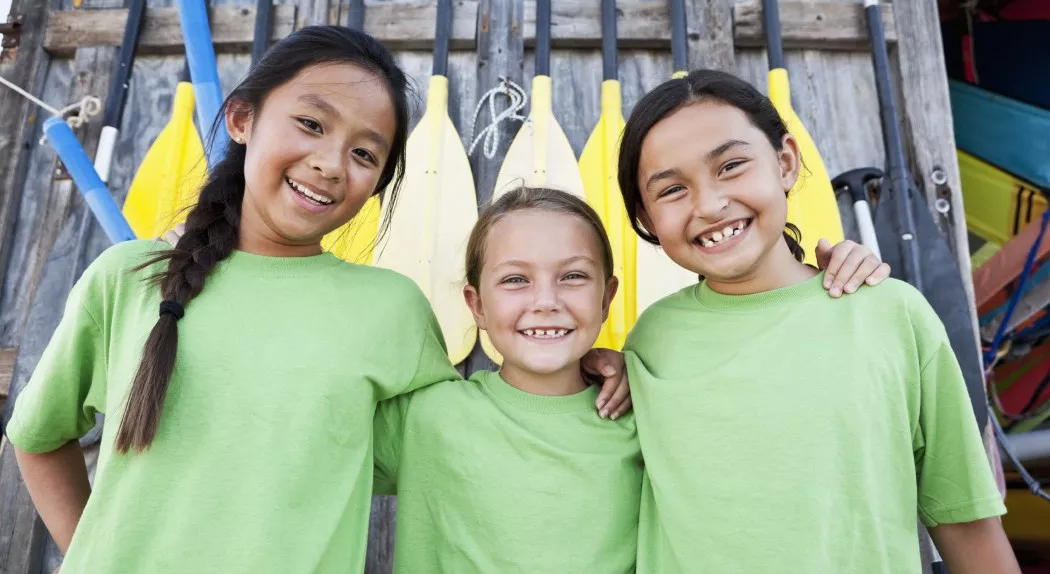by Luminis Health

Multi-ethnic girls standing in front of canoe paddles at water sports equipment shack.
School is out for summer. Excitement in the air! But soon, the sudden shift in routine causes kids and parents alike to wonder, “What are we going to do now?”
With homework finally over for the time being and energy abundant, how can you as a parent channel your child’s energy into something positive and productive? Two words: summer camp.
There is nothing like the experience of going to summer camp. Whether it’s a day camp environment or an overnight camp, there are many options available in our area to fit any child’s interests and developmental stage. There are camps that focus on sports, arts, science, computers, faith and religion, and much more. No matter what type of camp you are considering, children will be stimulated emotionally, mentally, physically, and spiritually.
Summer camp can be a great way to facilitate, encourage and support your child’s growth:
- Self-esteem and confidence: Allowing children to engage in a safe environment that fosters the exploration of various activities and relationships without the pressure of academics.
- Spark new interest: Depending on the type of camp, most are likely to introduce something new to your child such as a game, craft or idea.
- Encourage new relationships: Introducing and encouraging children to engage in new friendships that can become life-long. In addition, building relationships with counselors can be a healthy way for your child to develop communication skills with adults.
- Independence: Regardless if a day camp or overnight camp is right for your child, giving them an opportunity to explore these avenues can be essential to their development.
- Resilience: Children learn decision-making skills, conflict management and stress relief techniques through experience in their daily interactions.
So many kids are sucked into their electronic devices these days. Camp is a great way to get them outside and socializing with other kids—without parents around.
When choosing a summer camp, here are some things to consider:
- What is my child currently interested in? In what activities or environments does my child thrive?
- Do I want a traditional camp that offers a variety of experiences or a specialty camp that focuses on a particular skill or activity?
- Would my child do better in a highly structured, scheduled environment, or one that allows him/her to choose activities?
- Would my child do best at a day camp, week-long overnight camp, or a summer-long camp? If this is your child’s first camp experience, you might start with a day camp in order to get them used to the idea of being temporarily separated from their family. If your child is older (about 12 is when most children are ready), an overnight camp might be right.
- How will I communicate with my child while at camp? Will I be allowed to visit, email, write?
- Does my child have special needs (physical, dietary) that need to be considered?
- What is my budget?
- Is the camp and staff properly accredited, certified and trained?
Of course, be sure to include your child in the camp-choosing discussion. If you’re considering an overnight camp, talk to your child about it and get their thoughts and feelings so they don’t feel forced into a situation. With that said, it may take a little nudging from you.
Summertime should be a mental break from the pressures of academics. Play is an important part of childhood that provides vital learning. As Mr. Rogers once said, “Play is the work of childhood.”

Meghan Siegel is a child life specialist at Anne Arundel Medical Center.
Originally published March 19, 2015. Last updated May 20, 2019.



